All Articles
Research Article
2. Habitusun Siyasal Tercihlere Etkisi: Çanakkale ÖrneğiResearch Article
5. Türkiye’de Kent Sosyolojisi ÇalışmalarıResearch Article
8. Et Üretim Tesislerindeki Tehditler ve Riskler: Bir Risk AnaliziResearch Article
12. Mimari Korumada Taşıma Tekniği Ve İzmir Yalı Camii ÖrneğiResearch Article
16. Çaycuma (Zonguldak) Pamuklu DokumalarıResearch Article
17. Kamusal İtibarın Güvenliği İçin Dezenformasyona Karşı MücadeleResearch Article
20. İklim Krizi ve Katı Atık YönetimiResearch Article
28. Toplumsal Değişimin Mekânsal Etkileri: Rize-Fındıklı KonaklarıIssue Reviewers

Türkçe, İngilizce


SAĞLIK BİLİMLERİ ÜNİVERSİTESİ, GÜLHANE TIP FAKÜLTESİ, HALK SAĞLIĞI ANA BİLİM DALI

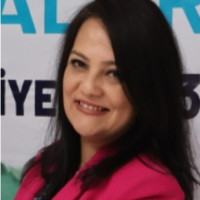
Konya Akören köyünde ilkokuldan (1986-1991), Bursa Özel Namık Sözeri Kolleji’nden (1991-1995), Bursa Milli Piyango Anadolu lisesinden (1995-1998) ve Dumlupınar Üniversitesi İktisadi ve İdari Bilimler Fakültesi (1999- 2003) İşletme anabilim dalı Yönetim ve Organizasyon bilim dalından mezun oldu. ‘İşletme Yönetim ve Organizasyon Bilim Uzmanlığını’ 2003-2006 yılları arasında Dumlupınar Üniversitesi İktisadi ve İdari Bilimler Fakültesi İşletme Yönetim ve Organizasyon bilim dalında aldı. Süleyman Demirel Üniversitesi Sağlık Yönetimi Anabilim dalı, Sağlık Kurumları Yönetimi bilim dalında 6 Eylül 2021 tarihinde ‘Doktor’ ünvanını aldı. Eş zamanlı olarak yürüttüğü İnönü Üniversitesi İşletme ABD, Muhasebe ve Finansman bilim dalında doktora ünvanını 22.02.2024 tarihinde aldı. On yedi yıldır sağlık sektöründe bilgi ve deneyime sahiptir.
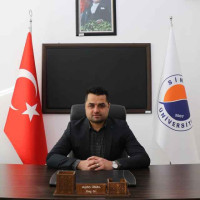
Dr. Aydın ÜNAL 1988 Antalya ili Kaş ilçesinde dünyaya gelmiştir. İlk ve ortaöğretimini Antalya ili Elmalı ilçesinde ve lisans eğitimini ise Balıkesir Üniversitesi Turizm İşletmeciliği ve Otelcilik Yüksekokulu Seyahat İşletmeciliği Bölümü’nde tamamlamıştır (2009). Yüksek lisans derecesini Sakarya Üniversitesi Turizm İşletmeciliği Anabilim Dalı’nda 2011 yılında Yrd. Doç. Dr. Oğuz TÜRKAY danışmanlığında “Örgütsel Güvenin Duygusal Emeğe Etkisi: İstanbul’da Yerleşik Dört ve Beş Yıldızlı Otel İşletmeleri Üzerine Bir Araştırma” başlıklı teziyle ve doktora derecesini de Balıkesir Üniversitesi Turizm ve Otel İşletmeciliği Anabilim Dalı’nda 2018 yılında Prof. Dr. Necdet HACIOĞLU danışmanlığında “Turistlerin Destinasyon Seçimi Öncesi Beklentileri ve Satın Alma Sonrası Değerlendirmeleri: Kapadokya Örneği” başlıklı teziyle almıştır. 2010 yılında Kırklareli Üniversitesi Pınarhisar Meslek Yüksekokulu’nda öğretim görevlisi olarak başladığı akademik kariyerine yine aynı kurumda Doç. Dr. olarak 2022 yılına kadar devam etmiştir. 2022 yılının mart ayında Sinop Üniversitesi Turizm Fakültesi Rekreasyon Yönetimi Bölümü’ne Doçent olarak atanan Dr. Aydın ÜNAL evli ve bir çocuk babasıdır. Dr. ÜNAL’ın temel çalışma alanları turizm pazarlaması, destinasyon pazarlaması ve turizm işletmeleridir.




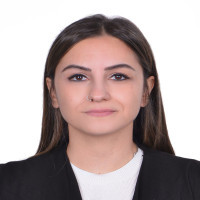
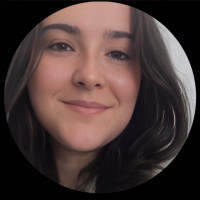






2004-2006 yılları arasında SDÜ Isparta MYO Tekstil Bölümünü tamamladı.
2006-2009 yılları arasında Dikey Geçiş Sınavı ile kazanmış olduğu Gazi Üniversitesi Mesleki Eğitim Fakültesi El Sanatları Bölümü Tekstil Dokuma ve Örgü Anabilim Dalı’nı bitirdi.
2009-2012 yılları arasında Dokuz Eylül Üniversitesi Güzel Sanatlar Enstitüsü Geleneksel Türk Sanatları Anasanat Dalı, Halı, Kilim ve Eski Kumaş Desenleri Anabilim Dalı’nda Yüksek Lisans Eğitimini aldı.
2014-2018 yılları arasında Gazi Üniversitesi Güzel Sanatlar Enstitüsü Geleneksel Türk Sanatları Anasanat Dalı’nda Sanatta Yeterlik eğitimini tamamladı.
2013-2014 yılları arasında KTO Karatay Üniversitesi Geleneksel Türk Sanatları Bölümü’nde Araştırma Görevlisi olarak çalıştı.
2014-2021 yılları arasında Gazi Üniversitesi / Ankara Hacı Bayram Veli Üniversitesi Sanat ve Tasarım Fakültesi Geleneksel Türk Sanatları Bölümü’nde Araştırma Görevlisi olarak görev yaptı.
2021-2022 yılları arasında Ankara Müzik ve Güzel Sanatlar Üniversitesi Müzik ve Güzel Sanatlar Meslek Yüksekokulu El Sanatları Bölümü Geleneksel El Sanatları Programı’nda Dr. Öğretim Üyesi olarak yer aldı.
2022 tarihi itibariyle "Doçentlik Unvanı" almaya hak kazanmıştır.
2023 yılından itibaren ise Ankara Müzik ve Güzel Sanatlar Üniversitesi Sanat ve Tasarım Fakültesi Geleneksel Türk Sanatları Bölümüne Doçent olarak atanan Gök, Eski Kumaş Desenleri alanına yönelik Uluslararası ve Ulusal birçok karma sergi, çalıştay ve sempozyuma katılmıştır. “Dokuma Belleği” ve “Dokuma Belleği 2 - Yazılı Kumaşlar” isimli iki kişisel sergisi bulunmaktadır.

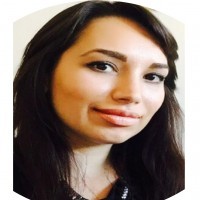
Mersin doğumlu sanatçı-akademisyen ve Sanat Terapisi Uygulayıcı Eğitmeni. Gazi Üniversitesi Sanatta Yeterlik mezunudur. Sanat çalışmalarına Türk kahvesi, nazar, Türk sembolleri, Türk öğretileri, Orta Asya ve Türk Boyları, Yörükler, yerel inanışlar, Şamanizm, mistisizm, etnisite, semiyotik, sembolizm ve kültürel sembolizm, sembolik imgelem gibi konular eşliğinde başlamıştır. Bu çalışmalar ardından sembolizmin, sembolik ve kültürel imgelemin ve dışavurumculuğun devamı olarak Sanat terapisi alanında çalışmalar yapmasını izlemiştir. 2012 yılından itibaren Sanat ve Terapi alanında çalışmalarını sürdürmektedir ve Sanat ve Psikoterapileri derneği üyesidir. Yurtiçi ve Yurtdışında olmak üzere 8 adet kişisel sergisi ve yurtiçi yurtdışı olmak üzere çok sayıda karma sergisi olan sanatçı, malzeme resmi ile sanatla terapi alanına farklı atölye fikirleri sunarak, geleneksel sanatlardan da öneriler getirmektedir. Sanat ve terapi bağlamında da düzenli olarak yurtiçi ve yurtdışı çalıştaylar ve projeler gerçekleştirmektedir. Sanat Terapisi alanında uzaktan eğitim ve sürekli eğitim merkezleri olmak üzere Resim anasanat dalı Yüksek Lisans eğitiminde de Sanat ve Terapi derslerini ve eğitimlerini yürütmektedir. Avrupa' da ve Türkiye' de çeşitli Devlet kurumlarında proje ortağı ve proje yöneticisi olarak yer almaktadır. Türkiye Aile Çalışma ve Sosyal Hizmetler Bakanlığı Uluslararası Sanat Terapisi Projesinin proje ortaklarından birisidir. Polonya, Romanya, İsveç ve Finlandiya, Danimarka, Norveç, İtalya, İspanya, Portekiz, Amerika ile ortaklı Sanat Terapisi projelerine ve Hadrianoupolis Antik Kenti ile ortaklı Sanat Terapisi Çalışmalarına devam etmektedir. Karabük Üniversitesi, Safranbolu Fethi Toker Güzel Sanatlar ve Tasarım Fakültesi, Resim Bölümü' nde öğretim üyesi olarak görev yapmaktadır.

1979 yılında Edirne'de doğdum. Lise öğrenimimi Tekirdağ Anadolu Otelcilik ve Turizm Meslek Lisesi Mutfak bölümünde, Lisans öğrenimimi, Çanakkale 18 Mart Üniversitesi Turizm İşletmeciliği bölümünde tamamladım.Uzun yıllar otelcilik sektöründe görev aldım. 2013 yılından önce son altı yıl Antalya-Belek bölgesinde beş yıldızlı otel işletmesinde satınalma müdürlüğü görevini yürüttüm. 2013 yılı Ekim ayında Atatürk Üniversitesi Erzurum Meslek Yüksekokulunda öğretim görevlisi olarak akademik hayatıma başladım. Turizm İşletmeciliği ve Otelcilik alanında yüksek lisansımı tamamladıktan sonra 2017 yılından beri doktora öğrenimime devam etmekteyim. 2016-2021 yılları arasında faaliyet sürdüren Turizm Fakültesi Uygulama Oteli kurucu Koordinatörlüğünü gerçekleştirdim. Halen Sosyal Bilimler Meslek Yüksekokulu ve Turizm Fakültesinde mesleki ve uygulamalı dersleri yürütmekteyim.


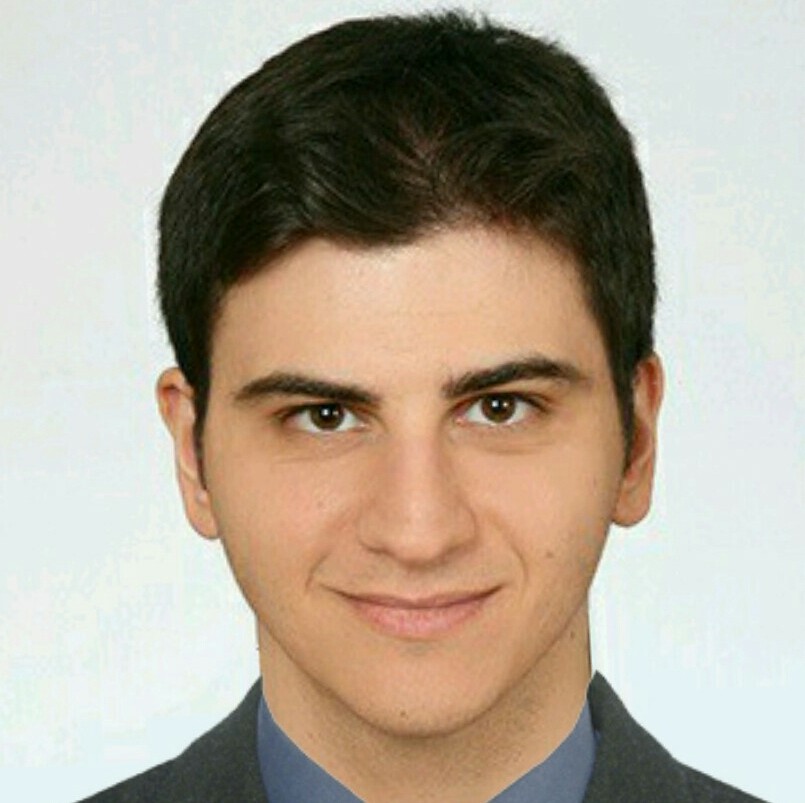
Dr. Fatih Sinan Esen is a senior computer scientist, researcher and author. He specializes in advanced technology areas such as artificial intelligence, large language models (LLMs), open data and metaverse. He is also working on the topics such as ethical and responsible use of these technologies and combating disinformation. While giving lectures at universities and informing students about artificial intelligence and related sub-topics, he shares his knowledge and experiences in various TV and radio programs, podcasts, face-to-face and online events. Dr. Esen, who also publishes scientific and academic works, is the author and editor of many books. He is actively interested in natural language processing (NLP) and LLMs.
He holds a BS degree in Computer Engineering from Bilkent University, an MBA from Istanbul Bilgi University, and a PhD in Business Administration from Gazi University. He continues his studies in the Computer Engineering PhD program at Ankara University. Dr. Esen has worked as a software engineer at Turkcell A.S., Kuka Robot GmbH-Germany and Datasel AS. He has been working for the government since 2007. Dr. Esen has also developed his academic career and has lectured as a part-time lecturer at Atilim University, Ankara Yildirim Beyazit University and Ankara University. He has also served as an academic mentor and jury member at the Goethe Institute-Germany, and was the founder and PI of Turnusol.org, Türkiye's first AI disinformation prevention and fake news detection tool.
Dr. Esen is a member of the Open Data and Technology Association (AVTED), founder and principle investigator of Metaverse Project Türkiye, and a member of Teknofest Advisory Board. He shares his knowledge and experience in his areas of expertise at events organized on different platforms. Dr. Esen closely follows the developments in his field, continues to contribute to the digital transformation of the public sector with innovative projects during the implementation phase of National AI Strategy. He also advises various TV/radio programs on AI.
For detailed information about his works and publications, you can visit his personal website (fatihsinanesen.com).
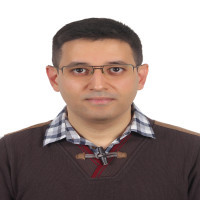
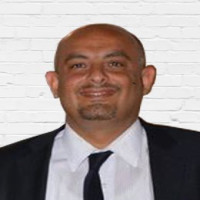

2014 yılında Atatürk Üniversitesi İlköğertim Bölümü’de doktorasını tamamlayan Mertol, Tübitak Doktora araştırma bursu ile New York St. John’s University’de Üstün Zekâlıların Eğitimi konusunda dünyaca ünlü isimlerden biri Güney Koreli Prof.Dr. Shooke Cho ile 8 ay NewYork’ta kalarak çalışmıştır. Kısa bir dönem MEB Özel Eğitim ve Rehberlik Genel Müdürlüğünde Özel Yeteneklilerin Geliştirilmesi Daire başkanlığı yapmıştır. KKTC Yakındoğu Üniversitesi’nde bir yıl süreyle Üstün Zekalılar Öğretmenliği bölümünde yarı zamanlı ders veren Mertol’un özel yeteneklilerin eğitimi ve dikkat ve algısı konusunda çeşitli yayınları bulunmaktadır. Özel eğitim ve özel yetenek konusunda iki bilimsel kitabın editörlüğünde bulunmuştur. Yurt içi ve yurt dışında farklı üniversitelerde ders vermeye eden Mertol, Üç doktora iki tezli yüksek lisans mezunudur. Farklılaştırma, Zenginleştirme ve Sosyal Bilgiler, coğrafya , okul öncesi alanlarında çalışmalara devam etmektedir. Multidisiplinler çalışmalara daha çok ağırlık veren Mertol, Halen Tokat Gaziosmanpaşa Üniversitesi Bölgesel Coğrafya alanında çalışmaktadır. Evli ve iki çocuk babasıdır.

.


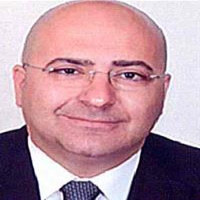

İstanbul Üniversitesi, Mühendislik Fakültesi Deniz Ulaştırma İşletme Mühendisliği Bölümünden mezun olan Murat Yorulmaz, Marmara Üniversitesi Sigortacılık ABD’de yüksek lisans, Beykent Üniversitesi İşletme Yönetimi Anabilim Dalı ve ayrıca İstanbul Üniversitesi Deniz Ulaştırma İşletme Mühendisliği Ana bilim Dalı'nda olmak üzere iki farklı alanda doktorasını tamamlamıştır. Kocaeli Üniversitesi, Denizcilik Fakültesi, Denizcilik İşletmeleri Yönetimi Bölümünde Öğretim Üyesi olarak görev yapmakta olan Dr. Murat Yorulmaz; deniz işletmeciliği, liman işletmeciliği, gemi yönetimi, denizcilikte dijitalleşme, liman işletmelerinde iş güvenliği ve yeşil limanlar konularında akademik çalışmalar yapmakta olup, evli ve iki çocuk babasıdır.
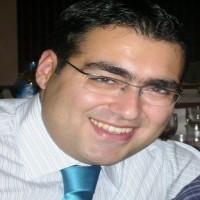

1978 Şanlıurfa doğumludur. 2001 yılında Yıldız Teknik Üniversitesi (YTÜ) Mimarlık Fakültesi Şehir ve Bölge Planlama bölümünden mezun oldu. 2004 yılında İTÜ Konut ve Deprem Yüksek Lisans programını tamamladı. 2016 yılında Kocaeli Üniversitesi Jeofizik Mühendisliği Anabilim Dalından doktora derecesini aldı. 2020 yılında Rumeli Üniversitesi İş Sağlığı ve Güvenliği Yüksek Lisansını tamamladı. 2017-2020 yıllarında Biruni Üniversitesi Acil Yardım ve Afet Yönetimi Lisans programında misafir öğretim görevlisi olarak “Afet Yönetimi” ve “Afetlerden Korunma ve Hareket Tarzı” derslerini verdi. İstanbul Büyükşehir Belediyesi Deprem ve Zemin İnceleme Müdürlüğü’nde Japonya Uluslararası İşbirliği Ajansı ile yapılan “Mikrobölgeleme dahil Afet Önleme ve Azaltma Temel Planı” çalışmasında eş uzman şehir plancısı olarak görev aldı. 2003 yılında Kentsel Dönüşüm Müdürlüğü’nde “Zeytinburnu Pilot Projesi”nde “Deprem Master Planı”nın pilot uygulaması çalışmasında yer bilimleri ve bina deprem puanlarının hesaplanması çalışmalarında görev aldı. 2005 yılında Avrupa Birliği 6. Çerçeve Programı kapsamında TÜBİTAK ile ortak yürütülen Avrupa Risk Yönetimi Sisteminin Geliştirilmesi Projesi (FORESIGHT) projesinde görev aldı. 2004 yılından itibaren Afet Koordinasyon Müdürlüğü’nde afet yönetimi, afet ve acil durum planlaması, operasyon planları, tatbikat planlaması, afet veritabanı kurulumu, afet istatistiği, anaokulu çocuklarına yönelik afet eğitimi konularında çalışmaları ve yayınları bulunmaktadır. Ayrıca Deprem ve Zemin İnceleme Müdürlüğü’nde Yer Bilimsel Araştırmalar Altlık Veri Üretimi Projesinde Proje Koordinatörlüğü görevini yürütmektedir.
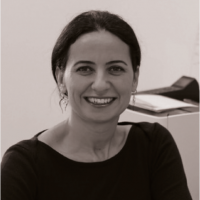


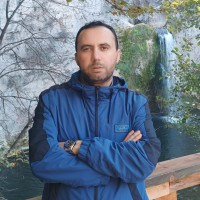



 Web
Web

Assist. Prof., Kocaeli University, Faculty of Maritime Studies, Maritime Business Management, PhD education at Istanbul University-Cerrahpaşa, Master's degree at Istanbul University-Cerrahpaşa Maritime Transportation Management Engineering. Articles and book chapters were published in the maritime field. Especially chemical tankers, seafarers, marine pollution and ship accidents are my specialty.






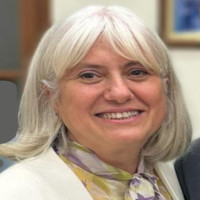


 Web
Web


21 Temmuz 1988 Trabzon doğumluyum. 2005-2010 Karadeniz Teknik Üniv. Lisans eğitimi tamamladım. 2011 yılında KPSS sınavı ile Ardahan Özel İdarede İnşaat Müh. olarak atandım. Ardahan OSB, Sanayi Sitesi İnşaatları, Yol Yapım İşleri, İçme Suyu isale hattı kontrollükleri yapıldı. Ardahan Köy yolları şeflik görevi icra edildi. 2012 yılı sonunda Trabzon İl Özel İdaresine naklen tayin oldum. Daha sonra Trabzon Büyükşehir Belediyesinde göreve devam edildi. Burada 50 nin üzerinde Altyapı, komple yol inşaatları, yagmur suyu hatları yanısıra beton ve asfalt kaplama uygulamalarında kontrol şeflikleri yaptım. Trabzon'da ilk kez finişerli beton, SSB(Silindirle Sıkıştırılmış Beton) yol uygulamalarının ilk uygulamaları proje ve uygulaması yaptım. 2017 yılında Karadeniz Teknik Üniv. Ulaştırma Anabilim dalında Master öğrenimi başlandı. 2020 yılında Beton ve Asfalt Yolların Dayanım, Dayanıklılık ve Maliyet Değişimlerinin Araştırılması konusunda tez tamamladım. Aynı yıl içinde Karadeniz Teknik Üniv. Doktora Programına başlamış olup, tez aşamasında devam edilmektedir. 2019 yılı Beton Yol Kongresi, 2021 yılı Asfalt Kongresine katılımcı olarak, 2022 yılında ise Beton Yol Kongresinde bildiri sunumu gerçekleştirildi. 6 adet Ulusal ve Uluslarası yayın ile 1 adet Tübitak 1001 ve 1002 projesinde Araştırmacı olarak görev almıştır. Halen daha Trabzon Büyükşehir Belediyesi Yol Yapım Daire Başkanlığında görevli olup, evli ve 2 çocuk babasıdır.









Akademik Unvanlar:
2009 Fırat Üniversitesi Fen Edebiyat Fakültesi Sosyoloji Bölümü Arş. Gör.
2016 Fırat Üniversitesi İktisadi ve İdari Bilimler Fakültesi Dr. Öğretim Üyesi

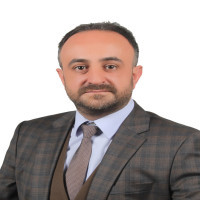



 Web
Web
Doç. Dr.



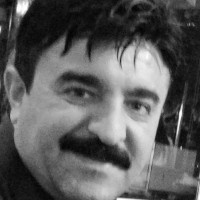

Aim & Scope
The main purpose of The Journal of Urban Culture and Management (JOURAC) is to provide scientific and academic studies for the benefit of the people of the world to ensure that Turkish and world cities become more prosperous, more livable; by publishing the architecture, administrative, economic, environmental, and engineering studies in the context of the city; and the literature studies in the context of the language and culture of the city in a multidisciplinary, interdisciplinary and trans-disciplinary mood while acting as the academia of the urban areas where the 80% of the world population live.
The Journal of Urban Culture and Management aims to pave the way for the scientific productions in urban areas and to make faster contribution to development and institutionalization of the cities, and to make more voluminous added values to the world civilization by taking the decision to make its publishing period four times a year.
In this context The Journal of Urban Culture and Management;
1. 1. Cares about its multidisciplinary and interdisciplinary structure and aims to encourage it.
2. 2. Accepts the cultural and ethnographic identities of the cities as world heritage and aims to create this consciousness.
3. 3. Aims to strengthen the importance given to the world heritage concept by people in the context of urban culture.
4. 4. Aims to lead the protection and introduction of the prehistoric remains with the cultural combination of the world cities, specifically Anatolian Territorry which is the credle of civilizations.
Journal of Urban Academy has accepted an article in the areas of particular urbanization, public administration, local government, political science, management science, urban planning, architecture, environment, environmental engineering, landscape, human geography, political history, art history, history of civilization, etymology, transport, transportation, logistics, intelligent traffic, communication, mass transportations, as well as disciplines such as ecology, renewable energy, environmental economics, civil defense, internal/external security, public health, hospital management.
Process and Refereeing::
Publishing Bimonthly / Open Access / International / Double Blind Peer Reviewing (Three Reviewing Per Article) Electronic Journal.
Author Guidelines
B- JOURNAL OF URBAN ACADEMY PUBLICATION GUIDELINES
- In this journal, all rights of published manuscripts and legal responsibilities belong to the authors. Even if the copyrights of publications in our journal belong to authors, after this publication is published for this once in the Journal of Urban Academy does not demand removal or erasing from the publication of the published manuscripts.
- Articles published in this journal are not cited without any reference in part or whole.
- Author(s) is/are fully belong to copyrights all his/her/their works published in the Journal. Therefore, legal responsibility related to article contents belongs to the authors.
- In the article submission process, if articles sent for review are not published, they can be erased by the Journal of Urban Academy. Our journal does not give a guarantee it is not erased from the database for articles that rest more than a year in the online interface. Published articles cannot be removed from the publication with no external justification, except for legal obligations. Our authors can not demand removal from the publication of the published manuscripts without a court decision.
- The Journal of Urban Academy is published online quarterly at the DergiPark website (https://dergipark.org.tr/tr/pub/kent) for uploading, process execution, and publication, and the portal (www.kentakademisi.com) for article publication. Urban Academy (KA) accepts articles discussing urban in multidisciplinary science and fields of occupation such as urbanization, public administration, local governments, political science, international relations, (local administrations) management sciences, law, urbanism, architecture, landscape, urban planning, geography, human geography, political history, art history, archeology, history of civilization, etymology, transportation, urban and intercity transportation, traffic, maritime, logistics, communication and techniques, social psychology, human resources, industrial engineering, industrial design, renewable energy, environment, environmental economics, environmental engineering, defense, civil defense, security, public health, hospital management.
- Authors should be sent in WORD format via e-mail or doing registration and saving articles in an interactive environment to publish your articles. In addition, it can be sent articles on TÜBİTAK Journal Park System. Unless email confirmation is received, email senders will not carry responsibility. Our Journal is not responsible for documents lost and/or disappearing in an electronic environment.
- Articles may be Turkish or English. The title and abstract parts of articles should be one in Turkish, English, German, and French languages. Similarly, keywords should be Turkish and English. Paragraph space should be 12 nk and indent should be 0 (zero) in the articles. Namely, it is not used paragraph indentation.
- The article would never have been published if studies had been published anywhere before. As for translation writings, it is defined as the publication name the translation, volume, issue, author, and country.
- The content should be numbered systematically DRAWINGS, PAINTINGS, PHOTOS, and SHAPES which are added to articles.
- The author’s right of publication has no obligation to transfer our site in case of clear articles and reviews are sent Journal of Urban Academy for publication.
- In addition to articles submitted for publication, authors upload any of the iThenticate, Turnitin or intihal.net similarity screening reports. Our similarity standard in publications has been applied as 30% since March 2017, 25% as of March 2018, and 20% as of March 2019. In addition to the maximum similarity rate of 20% in total, the citation rate of each reference should not be more than 1%. This rate cannot exceed 3% for articles produced from thesis. Rates resulting from journal template headers and footers are excluded so that details can be seen in the citation report over the full text. If the referee process progresses towards acceptance, the similarity report is re-taken from the latest version by our section editors, if the similarity rates comply with the publication criteria, it is uploaded to the process files.
- The Journal Editorial Board decides whether manuscripts sent to be published are issued or not issued and how they will play a part in this journal. The Editorial Board can request some changes in point of content and form from the author in case of find necessary.
- The first page of the article should play a part in the title and short abstract of the manuscript. Furthermore, it should be defined acknowledgments and other notes related to the study in the footnote part under the first page.
- The name, surname, degree, affiliation, and address of the author should play a part in the author's part found at the start of the article. Furthermore, it should be added to a short curriculum vitae for the author.
- The manuscript should be divided into sections that consider the content according to the headings. The first and last are defined as Introduction and Conclusion. Others are numbered such as 1.1, 1.2, etc. It uses bold letters to define section headings.
- Citations in articles should be made with the APA citation system version 7.0 and the bibliography should be processed in the same way.
- Before the abstract of the article, it should be written with at least five keywords in Turkish and English.
- Journal of Urban Academy is free to all visitors. This Journal does not charge any article submission or processing charges.
- Yazı eklemede herhangi bir sorun yaşayan yazarlarımız can transmit on online@kentakademisi.com web adress via e-mail.
- If it is benefitted from others’ views or references in articles, reference notations are APA 7.0 system.
- If the opinions of others or other sources are used in the articles, the references use the international APA 7.0 reference/bibliography system. Both in-text citations and bibliography should be created by these procedures and principles.
- The articles need to be created according to the ARTICLE TEMPLATE found in the documents section on the main page, on the left menus, for the rapid publication of the article in question.
- An extended abstract in English is required for Turkish articles that have been submitted. The template for the extended abstract can be found in both the initial submission and final version submission templates. Additional explanations for preparing the extended abstract are provided in the templates section.
Ethical Principles and Publication Policy
The publication procedures followed in Kent Academy are designed to ensure the objective and reputable development and dissemination of knowledge. These procedures directly reflect the quality of the work of the authors and their supporting institutions. Peer-reviewed studies are essential as they embody and support the scientific method. It is crucial that all parties involved in this process (authors, readers, researchers, publishers, reviewers and editors) adhere to ethical standards.
In accordance with publication ethics, Kent Academy expects all participants to fulfill the ethical responsibilities described below. These responsibilities are based on the Open Access policies and the principles issued by the Committee on Publication Ethics (COPE).
In certain matters beyond the scope of the COPE Ethical Principles and the Press Ethical Principles, final authority rests with the ICAM NETWORK Ethics Board, the editorial body of our journal.
A. Ethical Responsibilities of Authors
Authors submitting papers to Kent Academy must adhere to the following ethical responsibilities:
1. Originality: Submitted manuscripts must be original. If previous studies or sources are used, proper and accurate citations and references are mandatory. Methods such as paraphrasing without citing sources are considered ethical violations.
2. Integrity of authorship: Individuals who do not make an intellectual contribution to the content should not be listed as authors.
3. Order of authorship: The author who makes the greatest contribution to the work must be listed as the first author. Academic titles alone should not determine authorship priority.
4. Conflict of Interest: Any potential conflicts of interest or relationships that may influence the manuscript should be disclosed.
5. Data Requests: Authors must be willing to provide raw data on their work if requested during the review process.
6. Permission and Consent: Authors must have the necessary rights or permissions for the data and research analyzes used, as well as documented consent from participants in experiments or surveys, even if the journal does not specifically request these documents.
7. Correction and Retraction: Authors are required to notify the editor or publisher immediately if they discover an error in their published, early-view, or peer-reviewed paper and must cooperate with correction or retraction procedures.
8. Exclusive Submission: Manuscripts submitted to Urban Academy should not be simultaneously reviewed by any other journal. Previously published manuscripts cannot be resubmitted to Urban Academy.
9. Author Changes: No authorship changes (adding, removing, or rearranging authors) can be proposed after submission unless the corresponding author submits a request signed by all authors to the Editor through DergiPark.
B. Ethical responsibilities of the editors
Editors and associate (field) editors of Urban Academy are expected to adhere to the COPE Code of Conduct and the COPE Guidelines for Best Practices for Journal Editors and the "COPE Guidelines for Best Practices for Journal Editors".
Editors are responsible for every publication in the journal. In this context, the editors have the following duties and responsibilities:
1. Editors should endeavor to meet the information needs of readers and authors.
2. Editors must continuously work to improve the journal and consider its growth and development.
3. Editors should actively participate in improving the quality of published articles without delay.
4. Editors should support freedom of thought and work diligently to incorporate national and overseas research into the articles.
5. Editors must continue editorial processes without compromising intellectual property rights or ethical standards.
6. Editors must ensure transparency and clarity in publications regarding issues that require correction or explanation.
7. Editors should offer supportive guidance to the Associate Editors, helping to direct them through phone and online support.
8. Editors are responsible for taking feedback from readers, researchers and practitioners and providing clear and informative responses.
9. Editors should not disregard positive recommendations from reviewers unless there is a serious problem with the paper.
10. New editors should not change decisions made by previous editors unless there is a serious problem.
11. Editors should support field editors in carefully managing the double-blind process, informing them of potential violations and warning them if necessary.
12. Editors responsible for the publication process should ensure the effective and efficient use of the peer review and editorial processes.
13. Encourage local editors to contribute to the development of the peer review pool.
14. Editors are responsible for protecting the intellectual property rights of all published articles and defending the rights of the journal and authors in the event of infringement. They are also responsible for ensuring that the content of published articles does not infringe the intellectual property rights of other publications.
15. Editors should consider persuasive criticism of work published in the journal and adopt a constructive attitude towards such criticism.
16. Authors should be given the right to respond to criticism of their work.
17. Editors should carefully consider complaints from authors, reviewers or readers and respond in a clear and explanatory manner.
18. The journal owner, publisher or other political or commercial factors should not influence the editors’ independent decision-making process.
19. Editors should ensure that errors, inconsistencies or misleading assessments in articles are corrected promptly.
C. Associate (Section) Editors’ Ethical Responsibilities
1. Reviewers should be selected in accordance with the topic of the study
2.The journal is responsible for providing reviewers with the information and guidelines necessary for the review process
3. The journal must proactively identify and address any potential conflicts of interest between authors and reviewers.
4.In accordance with the double-blind peer review system, the journal must ensure the confidentiality of the reviewers' identity and carefully check that no identifying information such as names or personal details are included in the review forms or manuscript content
5. The journal should use methods that encourage reviewers to evaluate submissions impartially, scientifically and objectively.
6. Reviewers should be evaluated based on criteria such as timely responses and performance. The journal should use motivating and positive language when communicating with reviewers and avoid content debates.
7. Policies and practices to improve reviewer performance should be established and implemented.
8. Steps should be taken to ensure that the reviewer pool is dynamically updated.
9. If two reviewers give a negative review to a submission, but the article is considered to be of high value to the Urban Academy and the academic community, the journal may seek additional reviews from a third or fourth reviewer.
10. The journal should remain in regular contact with the author throughout the review process
11. The journal should respond politely and constructively to rejected manuscripts and provide authors with a clear, itemized list of reasons for rejection.
D. Ethical Responsibilities of Reviewers
Reviewers evaluating submissions for Urban Academy must adhere to the following:
1. The Urban Academy peer review process is based on the principle of double-blind review. Reviewers cannot communicate directly with authors, and their reviews and comments are submitted through the journal's administrative system. During this process, the reviewers’ comments on the evaluation forms and full texts are forwarded to the author(s) via the editor.
2. Reviewers should only review papers that fall within their area of expertise.
3. The review should be impartial and confidential.
4. If a reviewer believes that they may have a conflict of interest during the review process, they must decline to review the paper and notify the associate editor.
5. In accordance with the principles of confidentiality, reviewers must destroy the manuscripts they review after the review process. They may only use the final versions of the manuscripts once they have been published.
6. The reviews must be objective and based solely on the content of the manuscript. The reviewers must ensure that factors such as nationality, gender, religious beliefs, political views or commercial considerations do not influence their assessments.
7. Reviews must be constructive and written in a polite tone. Hostile, defamatory or derogatory personal comments should be strictly avoided.
8. Reviewers are expected to complete the assessment of accepted papers within the specified timeframe and to adhere to the ethical obligations outlined above.
9. Urban Academy ensures the protection of ownership and copyright for each published article and undertakes to keep records of all published copies.
10. The journal assumes responsibility for preventing and combating any form of scientific misconduct, citation manipulation or plagiarism in scientific publications.
E. Responsibilities of the Publication Committee
The Publications Committee is responsible for ensuring that all published manuscripts comply with the journal’s policies and international standards. The Committee:
1. The Editorial Board consists of the Editor-in-Chief, Associate Editors, Technical Editors and Language Editors.
2- The journal's shortcomings in terms of content, technology and appearance should not be overlooked. Any problems identified should first be reported to the person or department responsible.
3- The Editorial Board must actively express its views and opinions in virtual or in-person meetings.
4- The Editorial Board should meet regularly to review the publication policy and contribute to the development of the journal.
5- The publisher or its representative must not interfere with the content of the journal or disrupt the smooth functioning of the processes in any way.
6- The Editorial Board is responsible for supervising all processes related to the articles submitted to the journal. The editors are the final decision makers in these matters, regardless of economic or political considerations.
F. Protection of Personal Data
1. The Urban Academy is responsible for protecting the personal data of the subjects or images included in the peer-reviewed studies. The journal may reject work in which there is no documented consent from the subjects involved.
2. The Urban Academy is committed to protecting the personal data of associate editors, reviewers, authors and readers
3. The Urban Academy is committed to ensuring the protection of human and animal rights in peer-reviewed studies. The journal is authorized to reject work that does not have ethical approval for studies involving human subjects or proper permissions for experimental research.
G. Dealing with Misconduct and Abuse of Authority
Urban Academy is responsible for taking action against possible misconduct and malpractice. This includes the thorough and objective investigation of complaints, careful evaluation and disclosure of relevant findings. These tasks are the responsibility of the publisher.
H. Research and Publication Ethics
Research ethics aims to address concerns about neglecting the health, well-being and rights of individuals. It ensures that scientific research is conducted according to high ethical and scientific standards. Research ethics includes the realistic and needs-based design of studies, safeguarding the integrity of participants, the proper completion of research and the honest publication of results. Today, these requirements are based on fundamental ethical principles. Principles such as autonomy, non-maleficence, beneficence and justice provide a solid framework to ensure compliance with ethical standards throughout the research process.
For articles published in Urban Academy, ethical issues, challenges and disputes that may arise — including potential conflicts of interest between authors and third parties during the editorial process, publication or afterwards — are evaluated within the framework of universal international legal principles, ethical standards and general ethical regulations in Turkey. The final decisions on these matters are made by the ICAM Network Ethics Committee.
I. Reporting Ethical Concerns
Any ethical misconduct or content concerns regarding Urban Academy should be reported via email to info@kentakademisi.com Submissions will be reviewed and adjudicated by the ICAM NETWORK Ethics Board.
Price Policy
1. Our journal is open access, an editorial publication fee is charged from the author.
I. AUTHOR FEES
a. The publication charge/fee to be paid by the author is requested before the article is uploaded.
b. According to the decision of the Urban Academy Publication Board numbered S:92/2024/2/3 and dated 13/02/2024, the article submission fee will be 2,500 Turkish Liras or 75 USD as of 15/03/2024 and article submission fee changes will be made annually. It was decided to implement it.
c. The fee requested from the articles sent to our journal for publication is not dependent on the Acceptance / Rejection condition. This condition is carried out by the decision numbered 2021.18.643 on Predatory/Shabby Journals taken at the Council of Higher Education session dated December 30, 2021, and numbered 2021.18.
d. The fee payment requirement applies to all authors. Payments are transparent and auditable, which applies equally to each author. Reports on this issue are published in our journal at the end of each year. The authors jointly (jointly) calculate the fee in equal proportions among themselves. Payment is made from the authorized author's account.
to. Those who work as field editors at least twice a year in our journal are given a 50% discount on the publication fee.
e. In our journal, a 50% discount is applied to the publication fee of section editors who carry out and complete at least two section editing processes in a year. This discount is valid for each author's share of multi-author articles.
f. Publication fees are used for the secretariat, preparation for publication, and journal accreditation costs.
g. Fee payments can be made through the TL and USD accounts of the Black Sea Poets and Author Association, the publisher of our journal.
II. FEES FROM READERS and/or SUBSCRIPTION SYSTEMS
a. Journal of Urban Academy does not demand any fee from its readers.
b. Provisions requested by the Journal of Urban Academy, regarding libraries and special directories are reserved.
Karadeniz Şairler ve Yazarlar Derneği IBAN ACCOUNTS:
IBAN NUMBER (TL) TR: 070001500158007316964344
IBAN NUMBER (USD) TR: 530001500158048021390124
Detailed Urban Academy (Kent Akademisi) Publication Fee Policy can be accessed from the link below or file D-2 in our Documents menu:
https://dergipark.org.tr/tr/download/journal-file/26111
International Refereed and Indexed Journal of Urban Culture and Management | Kent Kültürü ve Yönetimi Uluslararası Hakemli İndeksli Dergi
Information, Communication, Culture, Art and Media Services (ICAM Network) | www.icamnetwork.net
Address: Ahmet Emin Fidan Culture and Research Center, Evkaf Neigh. No: 34 Fatsa Ordu
Tel: +90452 310 20 30 Faks: +90452 310 20 30 | E-Mail: (int): info@icamnetwork.net | (TR) bilgi@icamnetwork.net


